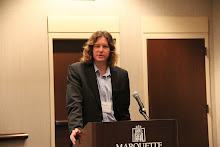During a job interview I was asked to define the term "philosophy". My answer was fairly lame and uninteresting. Something to the effect that philosophy is a practice of critically reflecting upon thought. Aside from being uninteresting there are also reasons why I don't necessarily agree with this definition. To begin with I am not convinced that philosophy only reflects upon thought nor that it need always be critical.
I wrote a paper once discussing the question of whether or not a uniquely African form of philosophy exists. My paper ended up focusing on debates in the African context surrounding attempts to define philosophy. I argued for a position rather like Paul Feyerabend's principles of proliferation and tenacity and suggested that developing any definition of philosophy which would foreclose from the start any method of inquiry, style of writing, or subject of interest leads to an unnecessary loss of productivity and creativity in the field.
One concern we might have with this view is born from the idea that standards are necessary in any discipline and that these standards should be worked into the definition and self-conception of the discipline itself. By setting firm boundaries on what counts as philosophy we guard against the production of poor work.
It seems to me, however, that any principle broad enough to figure in a definition of philosophy is likely to fail in any number of concrete cases. Can't we rightly question the value of work once it has been done, rather than attempting to determine the outcome ahead of time?
Subscribe to:
Post Comments (Atom)


No comments:
Post a Comment